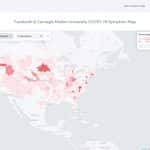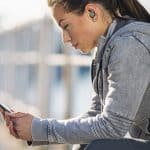Enterprise IT spending remains strong despite coronavirus

Despite facing the challenges of supporting remote workforces and meeting the online needs of customers, 58 percent of IT leaders expect to either significantly or moderately increase their annual technology budgets.
The report from SaaS infrastructure platform OpsRamp also finds 73 percent of IT operations and DevOps team leaders expect to either accelerate or maintain digital transformation initiatives and projects, indicating the value of digital products and services in an era of social distancing.
Coronavirus stimulus payments offer tempting target for cybercriminals

While many industries are struggling to continue during the lockdown, the cybercrime business is gearing up to exploit the economic stimulus and relief payments being offered around the world.
Researchers at Check Point have seen COVID-19 related cyberattacks rise to an average of 14,000 a day this month, which is six times the average number of daily attacks compared to March.
Facebook and Carnegie Mellon University launch COVID-19 symptom map

Facebook, in partnership with Carnegie Mellon University, has launched a new interactive map to help people keep up to date with the spread of coronavirus across the US.
For now, the map is based on surveys carried out around the country and it enables you to see how many people are experiencing symptoms associated with the disease. The map only covers the US at the moment, but there are plans to expand it to cover other countries soon.
Microsoft adds coronavirus updates to Windows 10

With the coronavirus pandemic gripping the attention of the world, there are endless sources of information to help you keep up to date with the latest developments regarding the disease. Now Microsoft has added a COVID-19 tracker, news and resources directly in Windows 10.
Thanks to integration into the operating system, the latest factual information about the coronavirus -- including maps to track the spread -- is just a couple of clicks away.
Facebook will let you know if you've been reading nonsense about coronavirus

As the world struggles to deal with the coronavirus pandemic, there is another battle taking place online -- the battle against misinformation. Well-aware that its platform is being used to spread false and misleading information about the disease, Facebook is taking action to try to stem the flow.
The social media giant, like other technology companies, has already taken steps to ensure people have access to reliable information, but now it is going further. Facebook will now retroactively alert people who have interacted with "harmful misinformation about COVID-19".
A post pandemic world: A technologist's thoughts on professional and social change

It’s sometimes hard to imagine life returning to normal. Nevertheless, this pandemic, like those of the past, will eventually recede, but it won’t leave us unchanged. COVID-19 has already had a dramatic impact on our lives and how we interact, conduct business and obtain the products and services we need.
As chief technology officer of a technology service provider, it’s my job to consider how such events will shape business so we can adjust the services we deliver accordingly. Naturally, I have specific thoughts on topics like backup and disaster recovery as a service (DRaaS), but I also have to consider societal changes and the ways in which businesses and consumers will utilize technology moving forward. So, what will a world after COVID-19 look like? Here are a few observations and thoughts.
Microsoft announces extended support dates for older versions of Windows

Having already extended the end of service date for Windows 10 version 1709 because of coronavirus, Microsoft has now announced that it is doing the same for Windows 10 version 1809.
Just as with Windows 10 Fall Creators Update, the October 2018 Update will now be supported for an extra six months. Previously due to reach end of service on May 12, 2020, the Home, Pro, Pro Education, Pro for Workstations, IoT Core and Server editions of the operating system will now be supported until November 10 this year.
US big data firm is using confidential UK coronavirus patient information to build 'COVID-19 datastore'

There are privacy concerns following the revelation that confidential data from UK coronavirus patients is being used by technology firms and government to build predictive computer models to help fight the pandemic.
US big data firm Palantir and UK AI startup Faculty are working together to put together what has been described as a "COVID-19 datastore". Pulling together information from government databases as well as information from health services, the project also makes use of highly personal data relating to individual patients according to documents seen by the Guardian.
Coronavirus means Unicode 14.0 emoji are delayed by six months... so you can still submit ideas

The fallout from the coronavirus pandemic has been incredibly varied, but few people would have considered that the spread of the disease around the world would lead to a delay in the release of new emoji. But that's precisely what's happening.
If you were looking forward to a new batch of emoji from the Unicode Consortium early next year, you're going to have to wait a little longer. Unicode 14.0 has been delayed by half a year. But while this delay is a disappointment, there are a couple of pieces of good news.
Microsoft Security Intelligence reports about coronavirus (COVID-19) misinformation being spread

Coronavirus, or COVID-19 as it is also known, is playing havoc with the world. Worldwide there are over 1.5 million cases and just under 100,000 deaths to date. Although measures are in place, it's going to be a rough ride for some time to come.
Not helping is the disinformation that is being used to scam the people who have the virus or are afraid of it. Most are existing scams repurposed for a new fear.
Philips ST702BK ActionFit Wireless Sports Earbuds come with UV cleaning case to fight Coronavirus

Bluetooth headphones and earbuds, such as Apple Airpods, are all the rage these days. It's not hard to see why this is -- many smartphone-makers have removed the 3.5mm port from their devices. Of course, the missing headphone jack is not the only reason -- Bluetooth models can also be better for those that exercise, as there aren't any wires to get tangled during activity.
Of course, with the Covid 19 Coronavirus on everyone's minds these days, I can understand why some wouldn't want to stick any earbuds -- wired or wireless -- into their ears. If a virus or bacteria is on an earbud, and you insert it into your ear, you could be unintentionally introducing disease into your body. Thankfully, Philips has new wireless earbuds that may solve this dilemma. Called "T702BK ActionFit Wireless Sports Earbuds," they come with a charging case that features ultraviolet (UV) cleaning. In other words, while you are charging them, and before you put them into your ears, they are being disinfected by UV light. Even AirPods can't do that!
Twitter's Jack Dorsey donates $1 billion to fund coronavirus research

In times of crisis, billionaires are often criticized for failing to help out. But when it comes to fighting coronavirus, Twitter founder Jack Dorsey is digging deep and offering up more than a quarter of his personal wealth.
In all, Dorsey is donating $1 billion to help fund global COVID-19 relief. The philanthropic venture sees the Twitter chief executive moving $1 billion worth of shares in his payments company Square into a charitable fund, called Start Small LLC.
Hiring and employment during COVID-19

The first United States case of COVID-19 was reported on January 20. Since then, the U.S. has become the epicenter of the novel coronavirus pandemic with more than twice as many confirmed cases as any other country in the world. The disease has led to lockdowns and quarantines on a scale never before seen in the U.S. as well as significant impacts on the economy and job market.
For employees and workplaces, these shifts could reverberate far into the future, potentially transforming virtually every aspect of hiring and employment.
Ontrack Remote Data Recovery service can keep businesses running during coronavirus lockdown

It can hardly have escaped your attention that huge numbers of people are now working from home. This has placed ever growing demands on the internet in general, and numerous specific services have struggled to cope.
One thing that hasn't changed is companies' need for reliable access to data -- if anything, the higher number of remote workers make this even more important. To help with this, data recovery specialist Ontrack has announced that its Remote Data Recovery (RDR) service is ready to cope with an upsurge in demand during the current COVID-19 crisis.
Legacy VPNs facing unprecedented modern security threats

Remote work is the future. Remote work is our new reality. Even though Gartner predicted that by 2020, half of the US workforce will be working remotely, no one could have anticipated it to become ubiquitous given the COVID-19 outbreak. The once-familiar 9-to-5 office environment as we know it has changed dramatically, and now, nearly everyone has been forced to work from home for the foreseeable future. This change is also expected to become permanent for many companies given the various benefits this model provides.
This rapid global transformation has forced the largest amount of people to work remotely in history. With millions of people connecting to their corporate networks from their homes, network infrastructure is being taxed like never before, creating new issues of internet overload and skyrocketing VPN usage.
Recent Headlines
Most Commented Stories
BetaNews, your source for breaking tech news, reviews, and in-depth reporting since 1998.
Regional iGaming Content
© 1998-2025 BetaNews, Inc. All Rights Reserved. About Us - Privacy Policy - Cookie Policy - Sitemap.